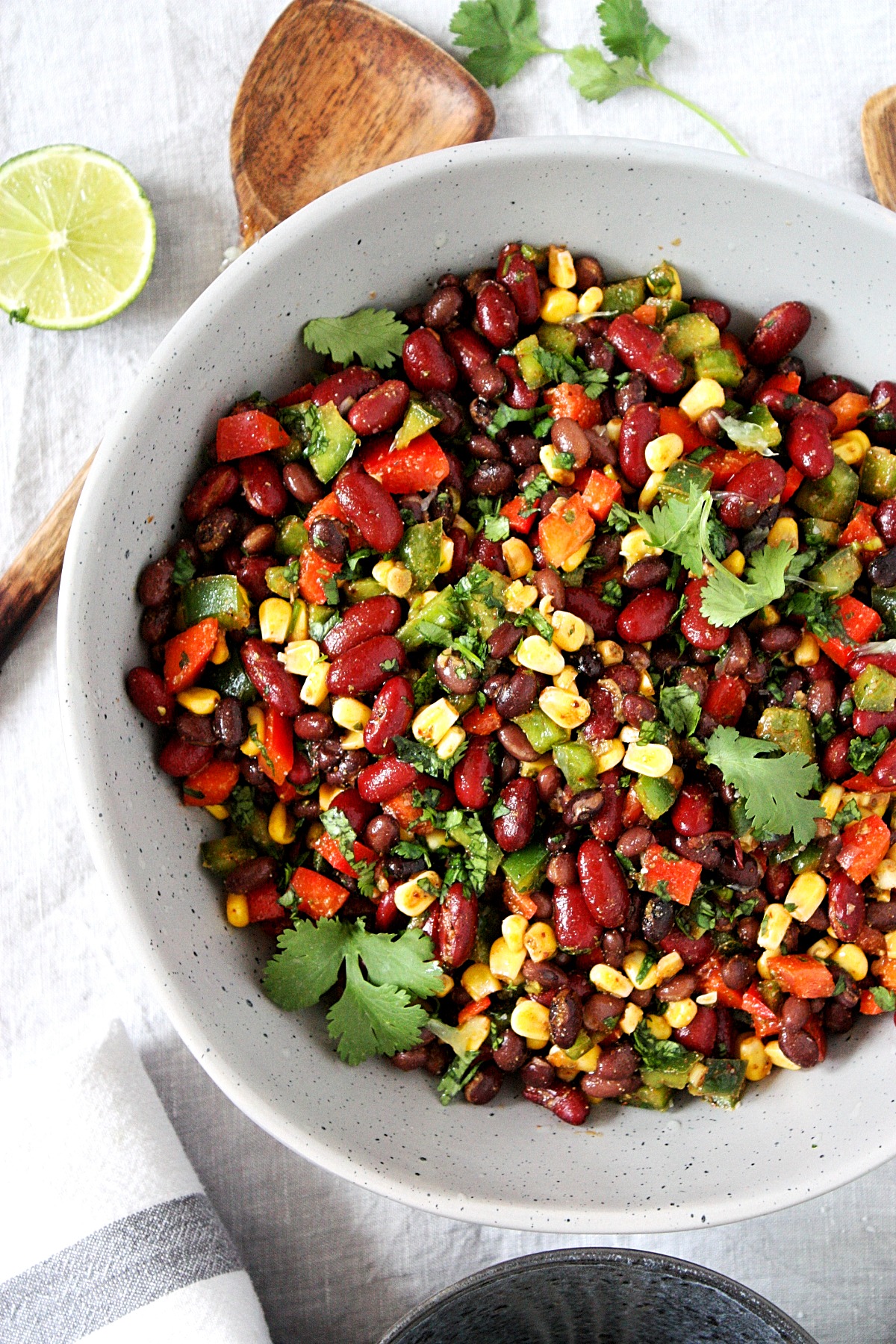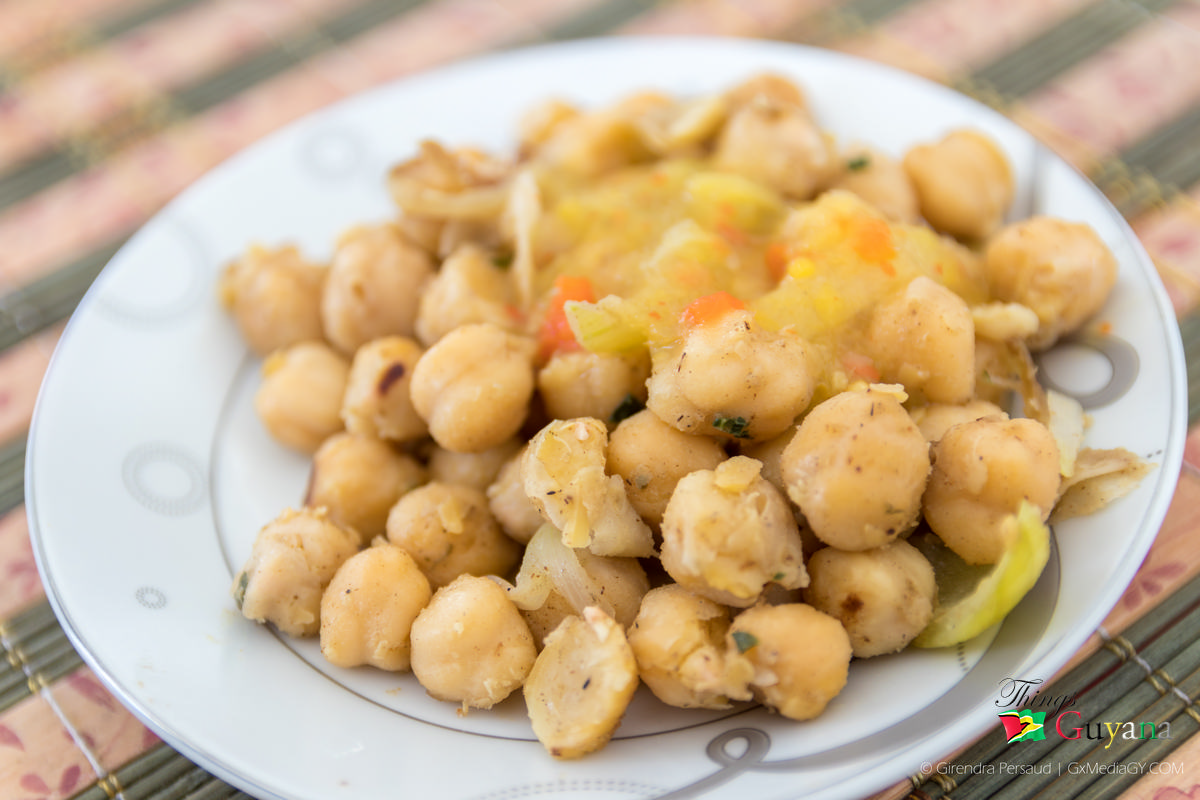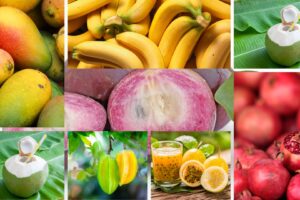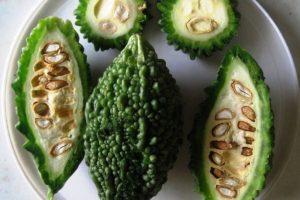The kidney bean is a variety of the common bean (Phaseolus vulgaris). Just as its name suggests, the kidney bean is shaped like a kidney. It is an important food crop and major source of protein throughout the world. They come in a variety of colors and patterns, including white, cream, black, red, purple, spotted, striped, and mottled. In Guyana, the beans are made into stew, used in soups and also in cook – up rice.
Where Did Kidney Beans Come From?
They’re believed to have originated in Peru. They have spread throughout Central and South America and were later introduced to Europe in the 16th century.
Description Of Kidney Beans
Kidney bean come from a twining, annual plant, where each alternating leaf consist of three broad to rhombic ovate pointed leaflets. The flowers are purple, yellow or white in the form of axillary sparse clusters. The material of the kidney bean pods are curled, yellow-white and thin pieces that take up to 15 centimeters of the fruit wall.
Nutritional Value Of Kidney Beans
Kidney beans are an excellent source of molybdenum. They are a very good source of folate, dietary fiber, copper, manganese, phosphorus, protein, vitamin B1, iron, potassium and magnesium.
10 Superb Health Benefits Of Kidney Beans
- Beneficial for digestive health – Kidney beans are a good source of dietary fiber. Fiber is normally of two types insoluble and soluble, kidney beans include both. Soluble fiber is helpful in reducing the amount of cholesterol you absorb from food and insoluble fiber provides required bulk for good digestive health as well as bowel movements. Research recommends consuming more fluids as soon as you consume kidney beans or any other legumes to assists digestive system properly uses additional fiber.
- Cardiovascular Benefits – Kidney beans include higher fiber content which is essential to reduces cholesterol level. Foliate content in kidney beans also helps to lower homocysteine which further decreases the chance of heart attacks, vascular disease and many other heart related diseases. Apart from that magnesium contained in kidney beans helps to maintain healthy functioning of the cardiovascular system.
- Cures Acne – Kidney beans consists of moderate quantity of Zinc that plays an important role in maintain healthy skin. Zinc helps proper functioning of sebaceous glands that helps to produce perspiration. Apart from that folic acids presents in kidney beans helps in forming new skin cells. Regular production of new cells can be beneficial to clear pores as well as decrease acne breakouts. Therefore kidney beans consumption is beneficial for better skin health.
- Relieves Fatigue – Fatigue, also mentioned as lethargy, tiredness, listlessness and exhaustion describes a physical and mental state of being tired and weak. Magnesium content of Kidney beans can significantly provide relief from fatigue. It also relaxes nerves, blood vessels and muscles. Regular kidney beans consumption also helps to reduce muscle soreness, headache, migraine and different effects of Asthma.
- Rheumatoid Arthritis – Rheumatoid Arthritis is a serious long-lasting progressive illness resulting in inflammation of joints and leads to throbbing deformity as well as immovability, particularly in the ankles, feet, fingers and wrists. Frequent Kidney beans intake is best options for decreasing such inflammatory conditions since kidney beans contain reasonable quantity of Copper content. Copper is essential to encourage certain enzymatic activity as well as sustain elastic properties of joints, blood vessels and ligaments.
- Treatment of the Common Cold – Common cold, simply known as cold, is a viral infectious illness of the upper respiratory tract that mainly affects the nose. Kidney beans intake improves the immune system of our body, which safeguards from colds and coughs. It enables the absorption of iron and hence strengthens the body’s resistance to infection. It also fights against viruses.
- Alzheimer’s disease – Alzheimer’s disease is actually a progressive mental weakening which takes place in middle or old age, because of general deterioration of the brain. It is the main reason of premature senility. Vitamin B is essential nutrients for proper brain function which is found in significant amounts in Kidney beans. It nourishes your brain nerves and cells which can avoid age linked disease such as Alzheimer’s.
- Bone Strength – Calcium and manganese present in Kidney beans are essential nutrients for maintain strong bones and other trace minerals helps to prevents osteoporosis (condition in which the bones become brittle and fragile due to loss of tissue). Different research have proven that low quantities of folic acid in the diet result in growth of homocysteine levels and considerably increases risk of osteoporosis-related bone fractures, mainly hip fracture in women and in men. Vitamin K content is also an acute nutrient for bone health. Vitamin K deficient people are at high risk of suffering from bone fractures problems. Vitamin K has shown to stop fractures in women who have passed through menopause and have previously started to experience bone loss.
- Antioxidants & Anti-aging Properties – Kidney Beans are loaded with antioxidants that are considered to have strong anti-aging properties and to encourage longevity by limiting the damage caused by free radicals. It will help protect the skin and the rest of the body from long-term problems caused by environmental factors as well as unhealthy foods.
- Curing Cataracts (Eye Disorder) – Cataract is most common conditions of visual problems. Kidney beans consist of considerable amount of vitamin C. An Insufficient quantity vitamin C within lens of the human eye has been discovered mostly when cataracts are present. An increase of vitamin C intake increases the blood supply to the ocular areas of the body.
Culinary Uses Of Kidney Beans Worldwide
- They are grown for the green immature pods and are consumed as a vegetable and are also canned and frozen in Europe, the United States and other temperate countries.
- In Southeast Asia and Papua New Guinea, leaves are also used as vegetables.
- Immature pods are frequently boiled, steamed, stir-fried, or baked in casseroles.
- Pods are consumed mixed with other vegetables like peas, carrots, corn or in stir fries with several types of meat.
- Pods are battered and fried and green beans are used in tempura in Japan.
- Green bean casserole including green beans, French fried onion and cream of mushroom soup is usually eaten particularly at Thanksgiving in USA.
- Kidney beans are used in chili con carne.
- Kidney bean is an essential part of the Punjabi cuisine in Punjab.
- Small kidney beans used in stews in La Rioja, Spain, are called Caparrones.
- Leaf is also rarely used as a vegetable and the straw as fodder.
- Seeds are typically boiled with seasoning and oil in tropical Africa.
- Beans can also be eaten mashed or made into soup.
- Young leaves of the plant are eaten as a salad in Java.
- Powdered seed makes a protein-enriching additive to flour; it can also be used in soups.
- Seed can also be sprouted and used in salads or cooked.
- Roasted seeds are used as a coffee substitute.
- Young leaves – raw or cooked as a potherb.
- Young leaves are eaten as a salad, the older leaves are cooked.
- In Guyana, the beans are made into stew, used in soups and also in cook – up rice.
7 Interesting Facts About Kidney Beans
- Bean leaves are used to trap bedbugs in houses.
- Microscopic hairs (trichomes) on the bean leave capture the insects.
- Beans were used as device in numerous methods of prediction. A fortune-telling using bean is called favomancy.
- Crop is used as fodder to feed animals.
- Brown dye is obtained from red kidney beans.
- Water from the cooked beans is very effective in reviving woolen fabrics.
- Plant residue remaining after harvesting the dried beans is a source of biomass.
About Kidney Beans
Kidney beans are an excellent plant-based source of protein. They’re also rich in various minerals, vitamins, fibers, antioxidants, and other unique plant compounds. Therefore, these beans may aid weight loss, promote colon health, and moderate blood sugar levels. However, kidney beans should always be eaten well cooked. Raw or improperly cooked beans are toxic.
Article References:
- https://www.healthbenefitstimes.com/kidney-beans/
- http://www.whfoods.com/genpage.php?tname=foodspice&dbid=87
- https://en.wikipedia.org/wiki/Kidney_bean
- https://draxe.com/nutrition/legumes/kidney-beans-nutrition/
- https://www.healthline.com/nutrition/foods/kidney-beans#vitamins-and-minerals
- Main Image: https://mondaysundaykitchen.com/mexican-bean-salad/







